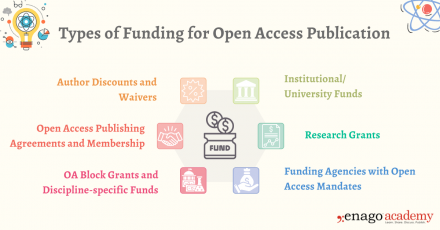Investing in Visibility: Incorporating publishing funds effectively in grant proposals

In academia and research, securing funding for projects has always been a critical endeavor. Also, in recent years, the importance of visibility and dissemination of research findings has gained substantial traction. As a result, incorporating publishing funds into grant proposals has emerged as a strategic move that not only supports the research process but also maximizes the impact of the research. In this article, we will delve into the significance of investing in visibility through publishing funds and provide insights into how to effectively incorporate them into grant proposals.
The Power of Visibility
In the digital age, the importance of making research findings accessible to a wider audience cannot be overstated. Traditional academic publishing models often come with access barriers that limit the reach of research articles to those who can afford subscription fees. This exclusivity can hinder the potential for collaboration, innovation, and societal impact that research inherently carries.
Open access obliterates these barriers, providing decision-makers with unhindered access to evidence-based insights. Whether it’s healthcare reform, environmental regulations, or social equity initiatives, policy decisions informed by openly accessible research are rooted in credibility and inclusivity.
Consider a scenario where a groundbreaking study reveals the adverse effects of a certain chemical compound on human health. With open access, this discovery reaches public health agencies, NGOs, and legislative bodies instantly. The result? Informed policies that safeguard citizens and drive positive change, all because research transcended the ivory tower.
Importance of Incorporating Publishing Funds in Grant Proposals
While it might seem like a mere financial detail, including publishing funds as a line item in grant proposals carries immense weight in the modern research landscape. Here’s why requesting open access publishing funds from your grant is not just an option, but a strategic move that enhances the visibility, credibility, and broader influence of your work.
1. Demonstrates Commitment to Open Access: Funding bodies and institutions increasingly prioritize open access as a means to increase research impact. By requesting publishing funds, researchers signal their commitment to making their work accessible, aligning with these priorities and enhancing the proposal’s competitiveness.
2. Broadens Audience Reach: Incorporating publication funds shatters accessibility barriers, ensuring that your research resonates not only with fellow academics but with curious minds, policymakers, and industry leaders worldwide. The expanded research of open access publications enabled by these funds can lead to collaborations and real-world applications of the research.
3. Facilitates Translation to Practice: In fields with direct real-world implications, such as healthcare or environmental science, publishing in open access can facilitate the translation of findings into practical applications, accelerating positive change.
4. Amplifies Credibility: In the realm of academic discourse, credibility is the currency that holds sway. Research that undergoes peer review and stands up to scrutiny gains the trust of the scholarly community. However, when publication fees are covered, it often indicates that the research has met rigorous standards and is deemed valuable enough to warrant wider dissemination. This endorsement boosts the credibility of your work, adding a resounding note of authority to your grant proposal.
Types of Funding for Open Access Publication
Funding for OA publication can take various forms and help researchers cover the costs associated with making their work freely accessible to the public. Here are some common types of OA funding:

1. Institutional Funds: Many universities and research institutions have established their own OA funds or repositories to support their researchers in covering publishing fees. These funds may cover all or a portion of the publication charges, ensuring that the institution’s research is openly accessible.
2. Research Grants: Some research grants and funding bodies explicitly include provisions for covering publication fees in open access journals as part of the grant budget. Researchers can apply for these funds as part of their grant proposal or as a supplementary request.
Using remaining research funds for Article Processing Charges (APCs) is a common practice and can be an efficient way to ensure that research findings are made openly accessible.
3. Funding Agencies with Open Access Mandates: Some funding agencies and governmental bodies have adopted open access mandates that require funded research to be published in open access journals. Researchers receiving funding from such agencies can benefit from financial support for open access publication as part of their grant package. For example, the National Institutes of Health (NIH) in the United States has a policy that encourages funded researchers to make their publications openly accessible, hence include provisions for covering publication fees in OA journals.
4. OA Block Grants and Discipline-specific Funds: Several funding organizations have implemented strategies to cover APC for their funded researchers. They do this by creating “block grants” allocated to institutions or by collaborating on APC funding schemes. These institutions, in turn, oversee the distribution of APC funds to affiliated authors. Among the notable organizations providing OA block grant funds are UK Research and Innovation (UKRI), the Wellcome Trust, the German Research Foundation (DFG), and several others.
Certain disciplines or research fields have specific funding programs or initiatives, like Bill & Melinda Gates Foundation and Cancer Research UK, dedicated to open access publishing.
5. Open Access Publishing Agreements and Membership: A number of publishers have established partnerships with academic institutions to streamline the process of publishing OA content in their journals. These transformative and consortia agreements offer authors, affiliated with member institutions, various advantages, including reduced APCs or the opportunity to publish OA without personal expense. University libraries may also have open access membership with publishers to offer financial support or guidance on securing OA publication funds.
6. Author Discounts and Waivers: Some open access journals offer fee waivers or discounts for authors who cannot afford to pay. These discounts can be based on various criteria, such as the author’s country of origin (e.g. low-income countries) or their affiliation with a particular institution.
Things to Consider While Applying for OA Funds
When applying for an OA fund to cover publication costs, there are several important considerations to keep in mind to ensure a smooth and successful application process:
1. Eligibility Criteria: Review the eligibility criteria of the OA fund carefully. Ensure that you meet all the requirements, including institutional affiliations, types of publications covered, and the publication venues (journals, repositories, etc.) that are supported.
2. Fund Availability: Verify the availability of funds. They may fully cover APCs for all publications resulting from their grants, partially cover them, or provide a fixed amount of funding per grant. Some institutional funds may cap the maximum amount of support available per publication, per research project, or per author within a given year.
3. Publication Policy: Understand the publication policy of your chosen journal or repository. Ensure it aligns with the OA requirements of the fund. Some funds require immediate OA publication, while others may allow an embargo period.
4. Required Documentation: Gather all necessary documentation, such as invoices, proof of acceptance, and confirmation of publication policies, as required by the OA fund.
5. Alternative Funding Sources: Explore other potential funding sources, such as co-author contributions, departmental support, or external grants, to supplement the OA fund or cover any costs that the fund doesn’t.
Conclusion
By strategically embedding publishing funds in grant proposals, researchers wield a powerful tool to amplify the reach and impact of their work. Open access publication is not merely a means to share findings; it’s a vehicle for democratizing knowledge, fostering collaboration, advancing scientific understanding, influencing policy, and catalyzing innovation. Throughout this article, we have illuminated the importance of infusing grant proposals with the vitality of publishing funds. We’ve delved into the diverse array of open access funds available, from institutional support to research grants and collaborative agreements. As we conclude this exploration, we encourage you to see open access funding not merely as a financial transaction but as a commitment to the broader ideals of scholarship. It’s a pledge to make research available to the world, regardless of barriers, ensuring that knowledge knows no bounds. Let us know in the comments section below the approaches you follow to publish in open access articles and the choices you make to avail publishing funds.
Frequently Asked Questions
To make research findings more accessible:
i. Publish openly in open access journals or repositories. ii. Share preprints on platforms like arXiv.
iii. Summarize findings for the public. iv. Share datasets and code on collaborative platforms and repositories.
v. Collaborate across disciplines. vi. Share and engage on social media and academic networking platforms
Writing a successful request for funds involves several key steps:
i. Identify your purpose and funding source ii. Study the funding source's guidelines and requirements
iii. Write a persuasive proposal that explains your purpose, its importance, and how the funds will be used iv. Highlight the positive impact of your project or cause
v. Provide a detailed budget outlining how the funds will be allocated vi. Carefully proofread and edit your request
vii. Follow the submission guidelines precisely and ensure you meet the application deadline
Open access funding refers to financial support provided to researchers to cover the costs associated with publishing their work in open access journals or repositories. This funding is designed to remove financial barriers for authors, making their research freely accessible to anyone without paywalls or subscription fees. Open access funding can cover Article Processing Charges (APCs), which are fees levied by publishers to make an article freely available, or other costs related to open access publishing.









